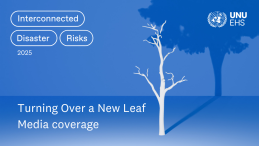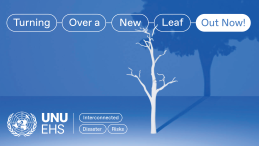Asset stranding in the fossil fuel sectors of African countries poses significant risk to development pathways for countries that face sustainable development challenges and have low historical carbon footprints. While risks are uncertain but potentially severe, responses await elaboration. There is an urgent need to identify bespoke policy choices based upon deep contextual understanding of countries and sectors.
Through this project, UNU-INRA will generate an evidence-based assessment that evaluates the socio-economic risks African countries face as a result of fossil fuel asset stranding. From a country case perspective, sustainable development policy actions for achieving the Paris Agreement targets will be identified.
The analysis will examine the implications of stranding different types of assets related to the fossil fuel sector across a range of country case studies. The initial findings from the case study countries will inform a full programme of work designed to equip policy makers with empirical evidence and tools for managing the risks and maximising the opportunities presented by various stranded assests scenarios, including the implications for the future of work, power dynamics for various social groups and genders, and green economy transitions in mineral rich countries.







